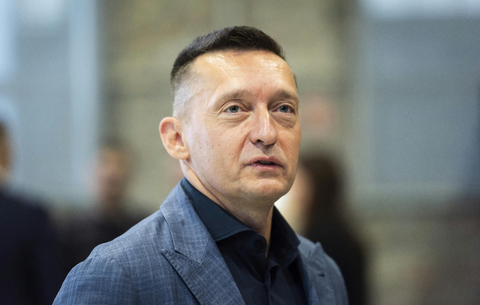Politics and the security services
Security experts believe the National Security Office (NBH) could end up sharing the police forces' fate.
In his valedictory dispatch, the departing director general of the NBH wrote: "There needs to be consolidation and restructuring to make the organisation work more rationally and effectively, and the number of leaders must be cut." Lajos Galambos is far from the only person to think this. The two main political parties agree that Hungary's secret services are ineffective in their present structure.
Gyorgy Szilvasy, the minister in charge of the security services, wrote in the NBH's yearbook last year that the Office's staff were reformable and capable of being run to a yet higher standard." But things have moved on since then. Revelations about the harrassment of a journalist at Magyar Nemzet led to the departure of Imre Boi, the director in charge of that particular operation, and Galambos left the Firm shortly after. His temporary successor is Sandor Laborc, a colonel in the Office who had served as his operational deputy. The assumption must be that both current and past officers are involved in the tax fraud scandal surrounding the Egymasert Egy-Masert Foundation charity (EEMF) that the Office is linked to.
Opposition politicians have always claimed the NBH was being used against them for political ends. But security experts told hvg.hu that the problem was more that the NBH does not have enough to do. This is the view of Miklos Varhalmi, a former head of the Socialist Party's security policy committee, who has long called for the security services to be reformed. He told hvg.hu that the Laszlo Kover had proved the most effective and knowledgeable secret services minister from the point of view of national defence. "As a minister he represented the services authoritatively and knowledgeably. He showed an understanding of personnel issues and he knew how to spend the development budget. He gave the services more tasks, and the government was able to make use of the information the NBH provided, he said.
By contrast, neither Medgyessy nor Gyurcsany have made full use of the services' abilities. Medgyessy even abolished the post of minister without portfolio in charge of the secret services. This has led to a certain slackness among the services, which has led to abuses. "If they are not allowed to work on serious counter-intelligence activities, then they'll end up like the police," he said, adding that, though the services are badly led, they are not being micromanaged by ministers for personal ends. He nonetheless admitted that there had been political "interventions, but that they had been proportionate. He believed the opposition was exaggerating the seriousness of the situation.
Ervin Demeter, a former Fidesz minister in charge of the secret services, agrees with Varhalmi up to a point. He suggests that the Prime Minister's Office and Szilvasy himself simply lack the time to do anything about the problems. Experts suggests that the entire security apparatus needs to be overhauled - there are too many areas where different services duplicate each other's activities.
Socialist sources suggest that senior party members have little interest in the secret services. Security experts within the party seem not even to know who has final say in the matter. "Nobody knows whether Antal Apro Jr, Piroska Apro, Andras Toth or Laszlo Valki, the foreign and security council chair appointed by Gyurcsany, has any say in the matter," one Socialist source told us.
András Dezső









